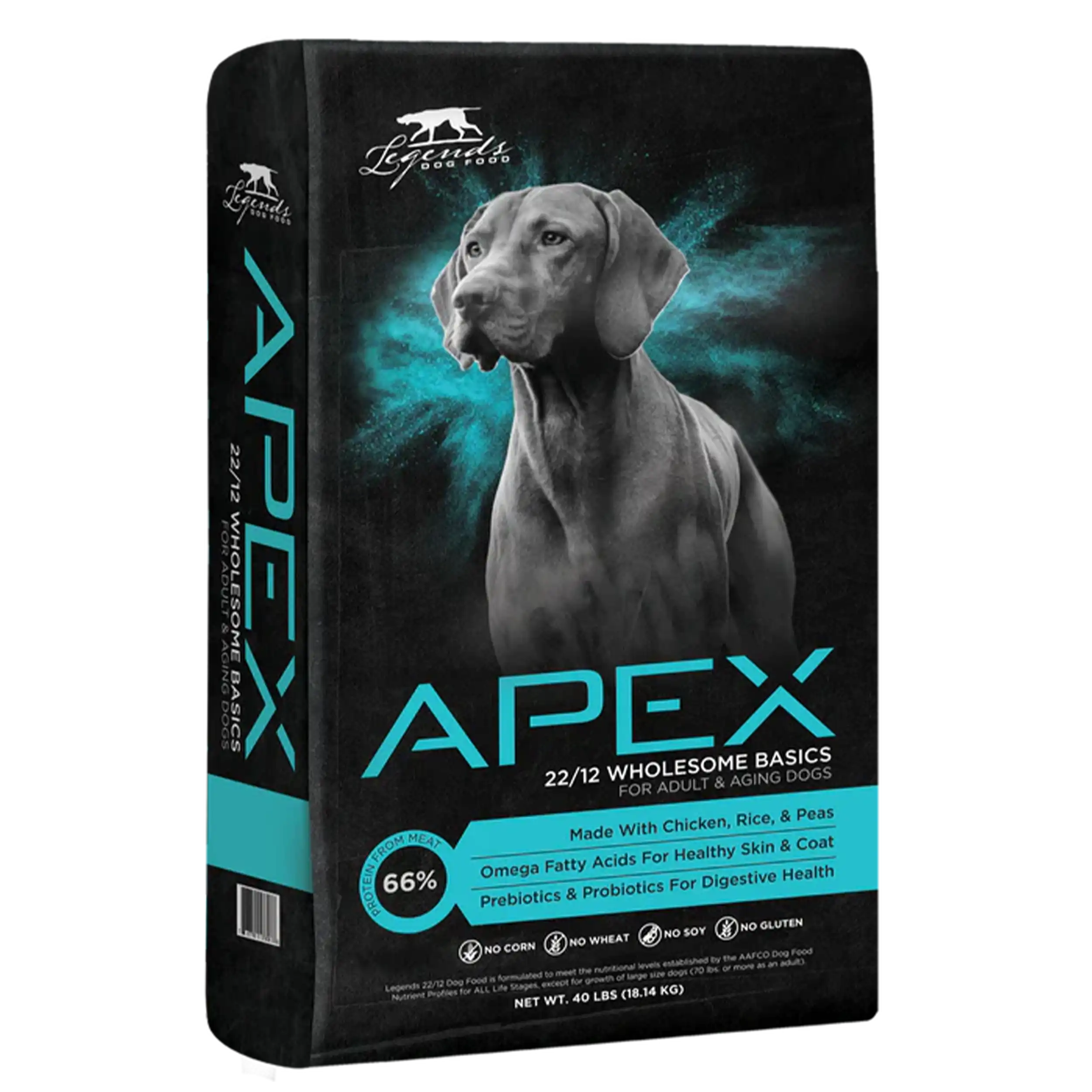
How To Choose The Right Dog Food For A Senior Dog
As your furry friend ages, their nutritional needs change. Senior dogs require a different balance of nutrients in their diet to maintain their health and vitality. Choosing the right dog food for a senior dog can be challenging, but it is essential for their wellbeing. Here are some tips to help you choose the right dog food for your senior pup.

Look for Senior-Specific Formulas
Many dog food brands offer senior-specific formulas that are specifically designed to meet the nutritional needs of older dogs. These formulas often have reduced calorie and fat content to help manage weight and lower the risk of obesity, which can lead to health issues like diabetes, arthritis, and heart disease.
Senior-specific formulas also tend to have higher protein content to maintain muscle mass, as well as added supplements like glucosamine and chondroitin for joint health. When shopping for senior dog food, look for brands that offer formulas designed specifically for dogs over the age of 7 or 8.
Consider the Protein Content
Protein is an essential nutrient for all dogs, but it is particularly important for senior dogs. As dogs age, their ability to absorb and utilize protein decreases, so they need a higher protein content to maintain muscle mass and support healthy aging.
When choosing a senior dog food, look for a formula that has a minimum of 25% protein content. High-quality animal protein sources like chicken, turkey, and fish are ideal, as they are easily digestible and provide the necessary amino acids for muscle maintenance and repair.

Check the Fat Content
While protein is important for maintaining muscle mass, fat is also an essential nutrient for senior dogs. Fat provides energy and helps support the immune system, as well as aiding in the absorption of fat-soluble vitamins.
However, it is important to be mindful of the fat content in senior dog food. Older dogs are less active than younger dogs, so they require fewer calories. A high-fat diet can lead to weight gain and obesity, which can lead to health issues like diabetes, heart disease, and arthritis.
Look for senior dog food formulas that have a fat content of around 10-12%. High-quality animal fats like chicken fat, fish oil, and flaxseed oil are ideal, as they provide omega-3 fatty acids that support brain and heart health.
Consider the Nutrient Profile
In addition to protein and fat content, it is important to consider the overall nutrient profile of the dog food. Senior dogs may have different nutritional needs than younger dogs, so it is important to look for formulas that are tailored to their specific needs.
Look for dog food formulas that are fortified with vitamins and minerals like vitamin E, vitamin C, and beta-carotene, which can help support immune function and overall health. Added supplements like glucosamine and chondroitin can help support joint health, while probiotics and prebiotics can aid in digestion and promote a healthy gut microbiome.

Talk to Your Veterinarian
Choosing the right dog food for a senior dog can be challenging, especially if your pup has health issues or special dietary needs. It is always a good idea to talk to your veterinarian before making any changes to your dog's diet.
Your veterinarian can help you determine your dog's specific nutritional needs and recommend the best dog food formula for their individual needs. They can also provide guidance on portion control and feeding frequency to ensure your senior dog is getting the right balance of nutrients.
In conclusion, choosing the right dog food for a senior dog requires careful consideration of their unique nutritional needs. Look for senior-specific formulas with adequate protein and fat content, a balanced nutrient profile, and added supplements to support joint and immune health. Always consult with your veterinarian to ensure your senior dog is getting the best possible nutrition for their individual needs.




Leave a comment
This site is protected by hCaptcha and the hCaptcha Privacy Policy and Terms of Service apply.